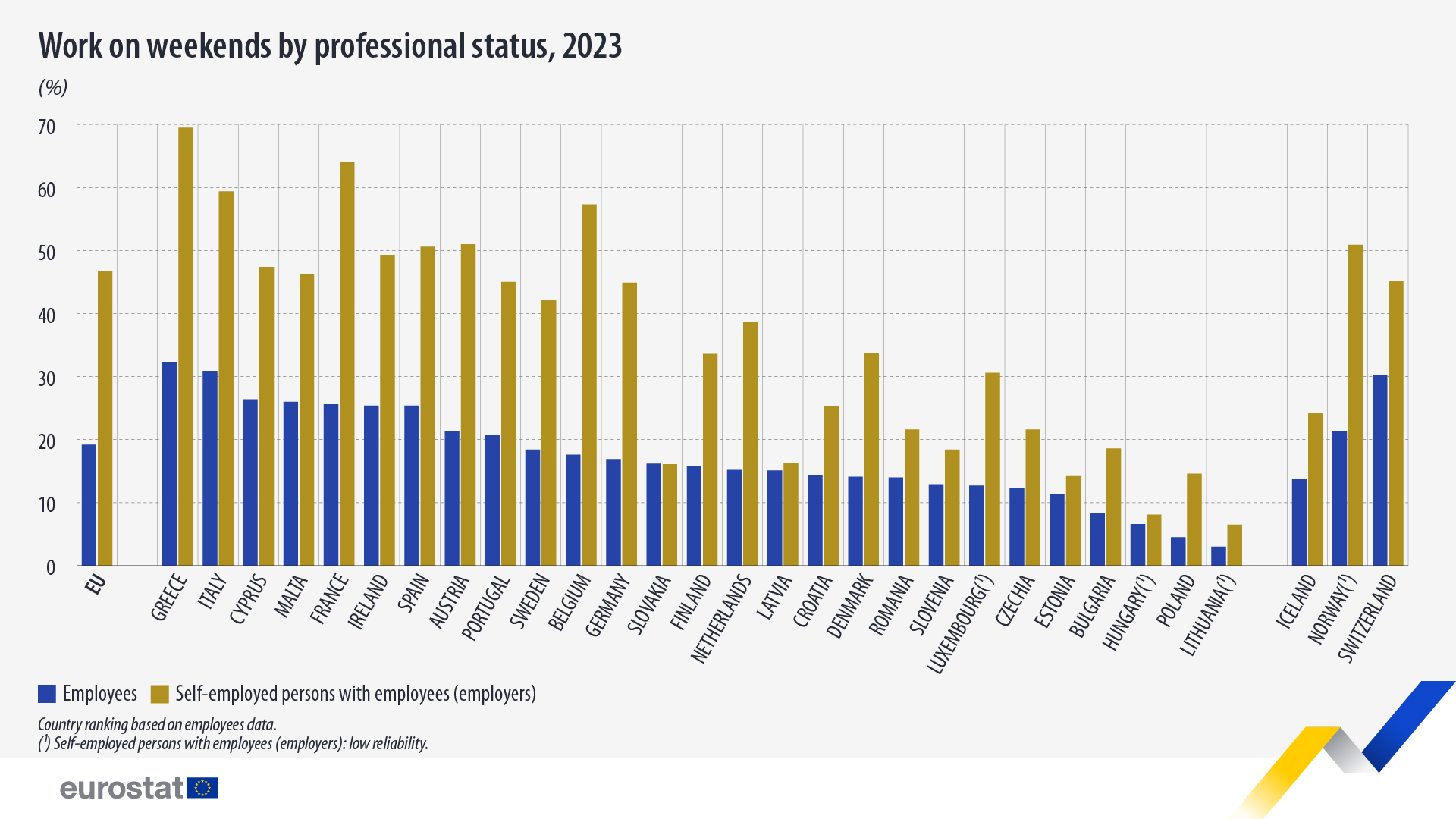Over 20% of employed people worked on weekends in 2023

In 2023, 22.4% of employed people in the EU usually worked during weekends.
Working on weekends was more common among skilled agricultural, forestry and fishery workers (49.5%), service and sales workers (48.9%) and people with elementary occupations (26.7%).
Source dataset: lfsa_qoe_3b3
While 19.2% of employees usually worked during weekends, this was also the case for 46.7% of self-employed persons with employees (employers) and 37.8% of self-employed people without employees (own-account workers).
Across the EU countries, Greece had the highest share of employees working on weekends (32.3%), followed by Italy (30.9%) and Cyprus (26.4%). Meanwhile, the lowest rates were recorded in Lithuania (3.0%), Poland (4.5%) and Hungary (6.6%).
Source dataset: lfsa_qoe_3b3
This article marks the International Workers’ Day celebrated annually on 1 May.
For more information
- Thematic section on quality of employment
- Database on quality of employment
- Statistics4beginners on the labour market
Methodological notes
- Work on weekends: percentage of employed persons usually working on Saturday or Sunday.
- Professional status classifies the employed people with respect to the type of labour contract: employees, self-employed persons with employees (employers), self-employed persons without employees (own-account workers) and unpaid family workers.
If you have any queries, please visit our contact us page.


